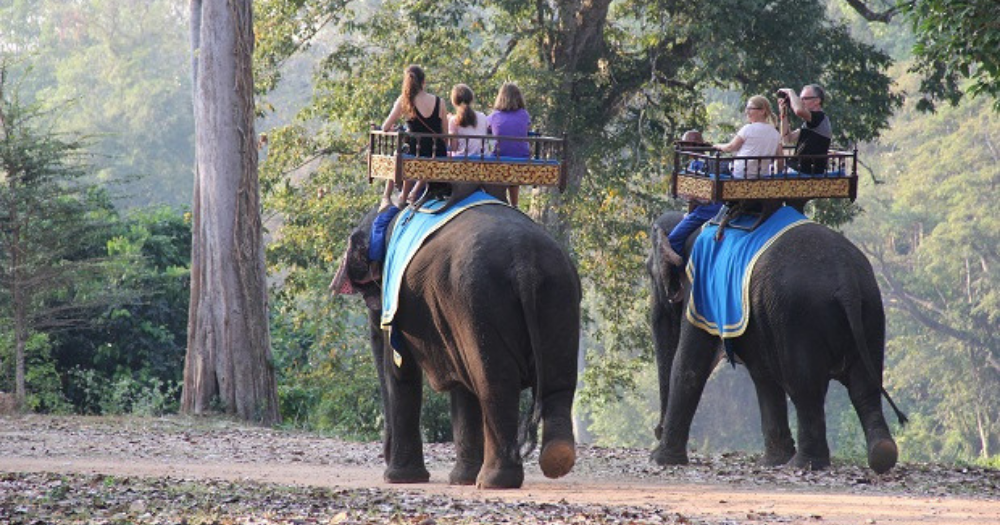Elephant rides are a common sight at Angkor Wat in Cambodia.
However, by the start of 2020, such rides will no longer be available.
Putting a stop to elephant rides by 2020
Angkor Wat is a temple complex in Siem Reap, popular with tourists and famed for its ancient architecture and religious symbolism.
In a bid to eliminate the widespread abuse of elephants in the tourism industry, a group of 14 elephants will no longer be forced to work at the site, according to a Metro article on June 8, 2019.
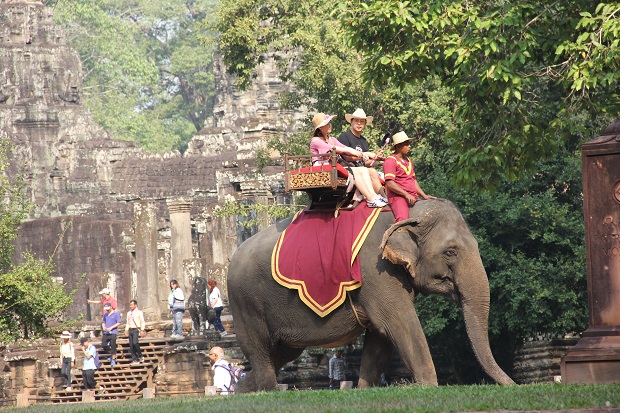 Photo from angkorfocus.com
Photo from angkorfocus.com
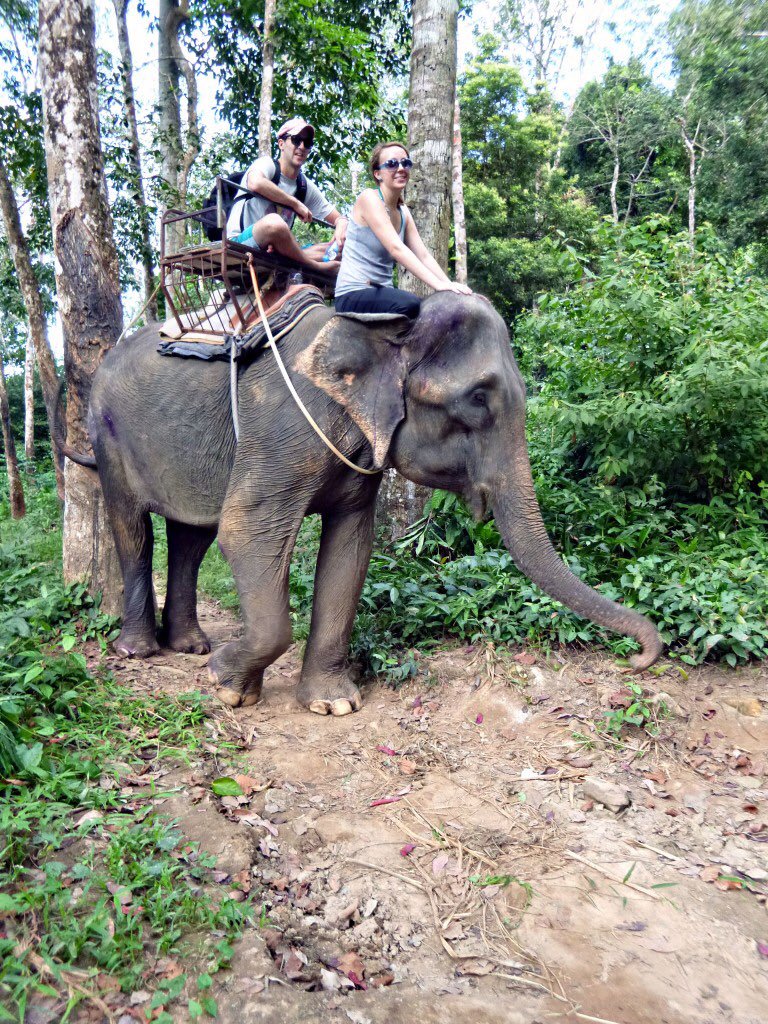 Photo from @Bellalack / Twitter
Photo from @Bellalack / Twitter
Instead, they will be able to live out the rest of their lives safely and peacefully at a conservation and breeding centre, the Angkor Elephant Group Committee confirmed.
The committee plans to slowly transfer the elephants to the centre by early 2020, and ideally by the end of that year, tourists will no longer be able to ride on the creatures.
The name of the conservation centre was not revealed.
Director of the committee, Oan Kiry, stated they wished for the animals to live out their life naturally:
"They can still watch the elephants and take photos of them in our conservation and breeding centre. We want the elephants to live in as natural a manner as possible."
Elephants often subjected to abuse
It is believed that there are still an estimated 70 "domesticated" elephants in Cambodia, Metro reported.
These elephants, subjected to a life of ferrying around tourists on their back, often undergo cruel abuse at the hands of their captors.
As one website advertises, adults can ride elephants at Angkor Wat for half an hour at US$28 (S$38.24). But what the price doesn't include, and which tourists are unaware of, is the lifetime of abuse that the elephants suffer.
To transport tourists, extremely heavy carriages (also known as a howdah in Southeast Asia) which tourists seat themselves on, are strapped onto the elephants' back.
These seats can weigh up to 100kg — which means that not only do elephants have to contend with the weight of the howdah, the tourists, and the mahout (the elephant handler), they often suffer from sores, blisters, and chafing from the contraptions.
Sadly, the abuse is even more deep-seated than being overworked on a daily basis.
To "domesticate" and tame the creatures, baby calves are often poached and separated from their mother and herd at a young age.
They will then be put through a traditional Thai ceremony known as phajaan (which means "crushing") meant to 'break' their mind, body and spirit.
Baby elephants are then immobilised with ropes, and beaten and tortured using bullhooks.
*WARNING: The photo below may be distressing to some viewers
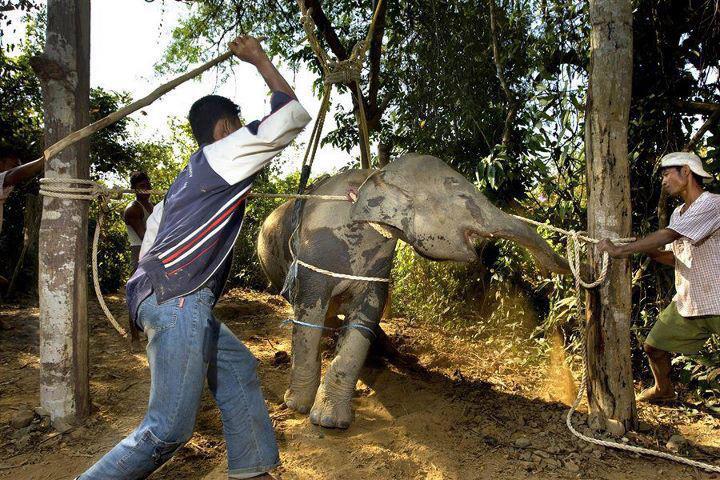 Photo from Defence against Animal Cruelty / FB
Photo from Defence against Animal Cruelty / FB
Petition to ban elephant rides
Following the collapse and subsequent death of a 40-year-old elephant while ferrying tourists in 2016, a petition was also formed to ban elephant riding at Angkor Wat.
A veterinarian concluded that the elephant had died from a heart attack as a result of "high temperatures". On that day itself, Siem Reap recorded a temperature high of 40ºC.
The petition racked up over 14,000 signatures within 48 hours.
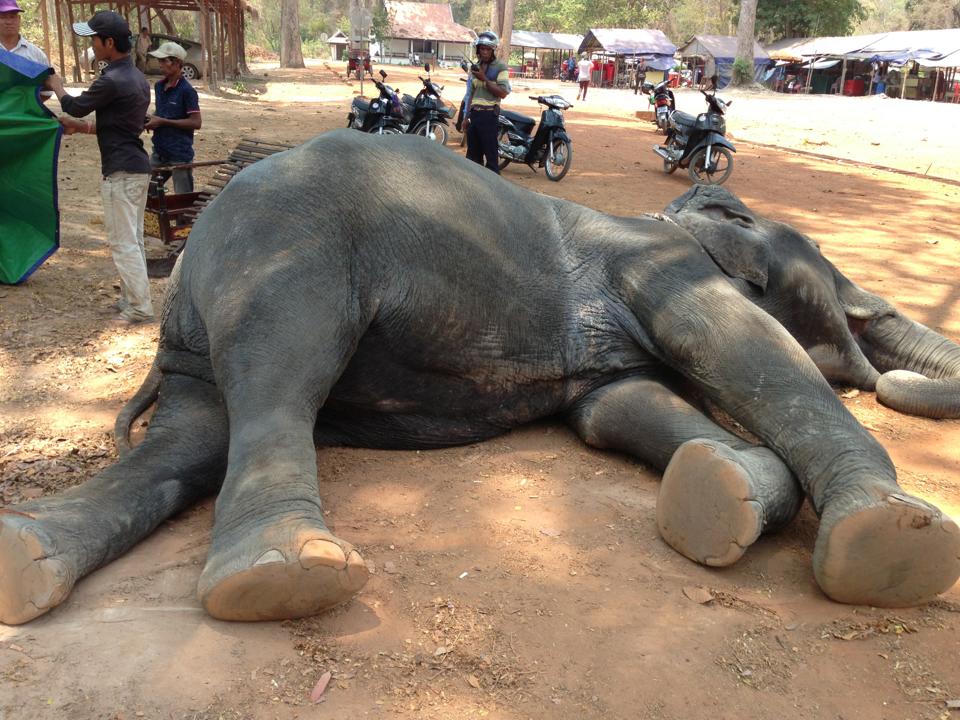 Photo from Brak Sarom / FB
Photo from Brak Sarom / FB
Clearly, the tide has been turning against the tradition of elephant riding.
Hopefully as elephant riding is progressively stopped at Angkor Wat, this exploitative trade could be put to a halt throughout Cambodia, and in other Southeast Asian countries too.
Related articles:
Top photo from angkorfocus.com
If you like what you read, follow us on Facebook, Instagram, Twitter and Telegram to get the latest updates.
